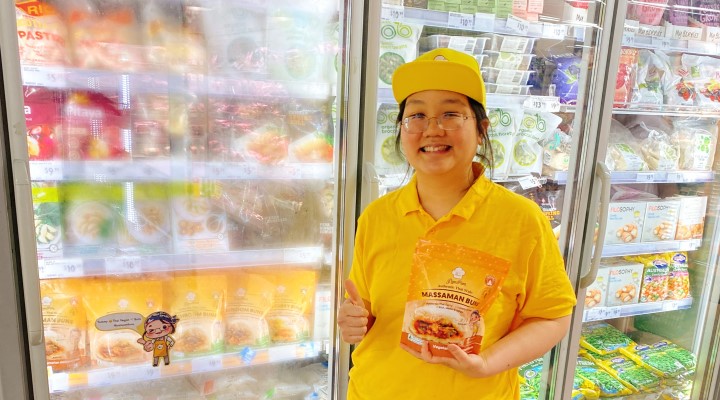This week, we talk to Pimarada (Pamela) Watcharadechmontri, owner of Pam Pam Buns, maker of authentic Thai plant-based buns, curry pouches, and ready-made rice meal trays. Belonging to a family of entrepreneurs, Pamela started out preparing and selling her homemade vegetarian Thai steamed buns to friends and local customers and has progressed to making her products on a larger scale. Their popularity soon attracted a large and loyal customer base which helped propel Pam Pam Buns to further growth, with the products eventually making their way to stores across Australia.
ISB: What inspired you to initially make and sell Thai plant-based steam buns to family, friends, and local market stalls?
PW: My main inspiration comes from my parents. I grew up in a family of entrepreneurs and always watched my parents run their own businesses, one after another. Some would fail, others would succeed. I inherited this entrepreneurial spirit which led me to study how to run my own business. After I graduated, I set the goal of doing just that. With my passion for food, in combination with my Thai background and love of steamed buns, Pam Pam Buns was born.
ISB: What was the difficult part of turning your small venture into a full-blown business and how did you overcome the challenge?
PW: One of the most difficult parts is that no one tells you how much is required to operate a full-blown food manufacturing business. While the business was generating popularity, I would try to learn as much as possible through different business education sources and studies in commercial cooking on how to commercially prepare food. After two years of steady growth, I decided to set up my own factory. It was also difficult since I had no experience of running a factory, but I ultimately got through it and was able to get my very first store in Sydney CBD in 2019. From there, we successfully got into Harris Farm which was the biggest and hardest challenge. Once we got into a great supermarket chain like Harris Farm, the ball starts rolling easier as the portfolio starts growing.
ISB: What do you think has made plant-based Thai food gain a following in Australia?
PW: The truth is Australians love Thai food! According to a recent survey, Thai food is the most popular cuisine amongst Australians when compared to all other cuisines. More and more Australians are also turning to plant-based, vegetarian or even “flexitarian” diets, therefore, we’ve combined the two.
ISB: How important has been the role of Pam Pam Buns’ loyal following in the growth of the business?
PW: Our customers are very caring and share our love for food, so we treat them like we would our friends and families. The loyalty of our customer base has been an important part of our business journey, particularly in the early stages when we were testing different flavours and types of meals. Our customers would always taste our food, give us feedback on what we’re making and suggest ideas on what we can do as a business. We owe our success partly to how loyal this customer base has been throughout the years.
ISB: What is your vision for Pam Pam Buns in the next two years?
PW: Our vision for Pam Pam is to expand to reach all areas in Australia, both through our online store delivery and in-store placement. Right now, we’re available in over 180 stores and online to almost every state, excluding the Northern Territory and South Australia. We also want to grow our product range and expand into other plant-based Asian cuisines. Traditionally, our customers find us in the frozen aisle, but we’re also looking into expanding our fresh food range.
ISB: As someone who came from a family of entrepreneurs, what has been the most important business lesson you’ve learned from them that you can share with other aspiring entrepreneurs?
PW: Success is about learning to be persistent, but not stubborn and sticking to the same approach. It’s about being flexible and being able to adapt to situations. My parents’ business journey had ups and downs. They went through many hardships. But when one business didn’t work out, they didn’t hesitate to shut it down. They never gave up and kept exploring new ideas. Through their experience and a lot of trial and error, they found the right business and ultimately, they are very successful with a business going strong for more than 15 years.












